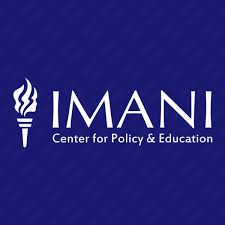IMANI Africa and a coalition of oversight institutions are demanding a comprehensive forensic audit and swift prosecutions following what they describe as damning revelations of fiscal leakages and governance failures in Ghana’s Gold-for-Oil (G4O) programme.
A confidential international forensic risk assessment of the initiative, which was designed to stabilise Ghana’s foreign exchange reserves, has concluded that it was systematically compromised and turned into a conduit for illicit enrichment.
The review, which drew on data from the National Petroleum Authority, the Bulk Oil Storage and Transportation Company, and the Customs Division, exposed consistent patterns of opacity, preferential access and structural loopholes.
It found that the gold leg of the programme was run without foundational contracts between the Bank of Ghana and the Precious Minerals Marketing Company, creating weak pricing controls, discretionary foreign exchange practices, and incentives for smuggling.
On the petroleum side, the assessment warned of massive fiscal losses, estimating that while GHS 7.5 billion in import tax exemptions were lawfully granted, the absence of downstream reconciliation left the state exposed to losses of about GHS 7.2 billion.
The report also raised alarm over the selection of international suppliers with opaque ownership structures and links to sanction-sensitive trading and money-laundering hubs in Dubai, Cyprus and Switzerland.
The forensic review further highlighted the conduct of former BOST officials and an allied company, alleging that they were central to a scheme that exploited the programme through undisclosed offshore assets, potential trade-based money laundering and breaches of fiduciary duty. It described the G4O’s shortcomings not as administrative lapses but as the product of a “deliberate architecture of obfuscation” designed to frustrate oversight and conceal leakage.
Reacting to the revelations, Dr. Ishmael Evans Yamson, Chairman of Ishmael Yamson & Associates, said the findings exposed how state officials had colluded with both foreign and local actors to undermine Ghana’s development efforts.
He urged government to demonstrate resolve by holding those involved accountable. IMANI’s Founding President and CEO, Franklin Cudjoe, said the scheme was not just flawed by incompetence but “systematically weaponised against the state,” insisting that uncompromising forensic audits, clawbacks and prosecutions were now necessary to recover lost revenues and deter future abuse. IMANI’s honorary Vice President, Bright Simons, added that the programme was a classic case of political theatre, designed to distract citizens while millions of dollars were diverted into private pockets.
IMANI and its partners said the Gold-for-Oil programme has left Ghana facing significant fiscal erosion and reputational damage and warned that any delay in enforcing accountability would amount to complicity.
The findings have been lodged with oversight and law enforcement agencies as a basis for immediate action.



